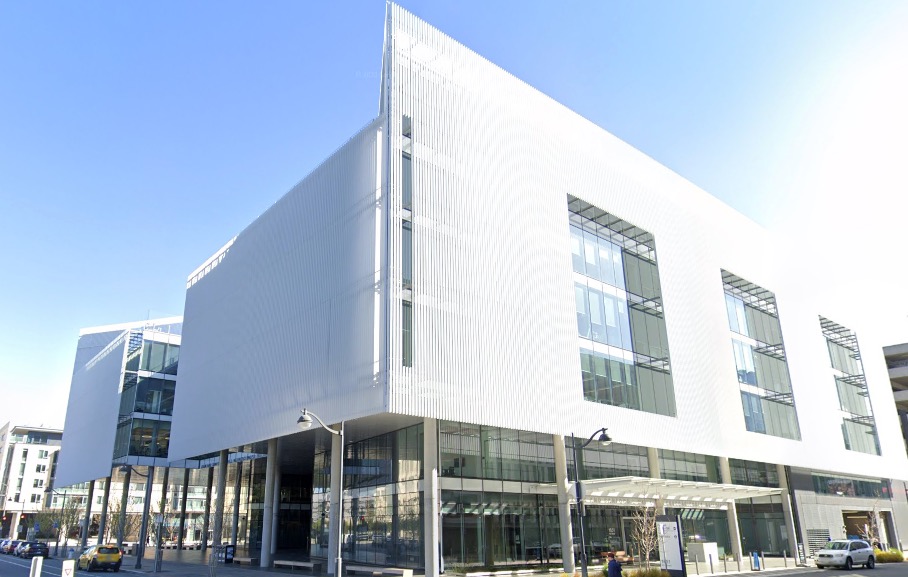
UCSF receives $100 million gift to boost dementia care
The Edward Fein Charitable Trust has donated $100 million to the newly named Edward and Pearl Fein Memory and Aging Center, located on UCSF’s Mission Bay campus.
UCSF has received a $100 million donation for its memory and aging center, a gift that doctors at the dementia care clinic say comes at a critical moment in the development of new therapies for Alzheimer’s and other neurodegenerative conditions.
The gift from the Edward Fein Charitable Trust, announced Wednesday by UCSF, comes without restrictions other than that it must be spent in the newly named Edward and Pearl Fein Memory and Aging Center, located on UCSF’s Mission Bay campus.
“It’s an almost unspeakable generosity,” said Dr. S. Andrew Josephson, chair of the neurology department at UCSF. “The amount is huge, but so is the scope. Most gifts we receive are very focused on a specific project. But this is someone who, because they believe so much in the mission of the aging and memory center, really wanted this to be unrestricted funding.”
Article continues below this ad
Josephson said the unrestricted nature of the gift also is important at this time of uncertainty in federal funding, with financial support for academic research under constant threat. “It gives us the kind of flexibility that, particularly in these times of challenging funding, is incredibly appreciated,” he said.
Brooklyn native Edward Fein was a stockbroker and financial analyst who retired in the 1970s and was committed, with his wife, to philanthropy, especially in medicine. He was cared for at the UCSF memory center for about a decade at the end of his life.
“This was a person who appreciated the care they received and wanted to make a truly transformative gift,” Josephson said.
Alzheimer’s disease and other forms of dementia afflict more than 7 million Americans, and that number is expected to nearly double over the next 25 years, according to the U.S. Centers for Disease Control and Prevention. Globally, about 150 million people are expected to be living with dementia by 2050, according to UCSF.
“Edward, Pearl and I had many conversations over the years about the importance of supporting our work in the face of this global challenge,” said Dr. Gil Rabinovici, the Edward and Pearl Fein Distinguished Professor, in a statement. The Fein family has supported his work since 2015 studying how brain scans can improve patient care and the development of new treatments for Alzheimer’s.
Article continues below this ad
The memory and aging center, which opened more than 20 years ago, is an unusual collaboration between front-line doctors treating patients in various stages of dementia and laboratory and clinical researchers who are studying potential breakthrough therapies. “Our clinical patients help inform questions that our researchers then address,” Josephson said. “And that research can be translated quickly to the patients themselves.”
It’s a popular program with about a six-week waiting list for patients. Caregivers there focus on working with patients and families and helping people live their best lives while facing dementia, Josephson said. Staff include therapists, social workers and genetic counselors.
The memory center also focuses on training, including community outreach for the general public interested in dementia and specialized studies for postdoctoral researchers.
Researchers at the center already have made advances in dementia, including developing new brain scans and blood tests to identify Alzheimer’s disease early, which could be critical in finding therapies that could halt the progression of symptoms or, ideally, prevent disease entirely. Scientists there also are leading large national trials for new treatments.
“We are keeping patients on the cutting edge of therapeutic options,” Josephson said.
Article continues below this ad
It’s an especially thrilling time for advances in dementia care, said Dr. Bruce Miller, who has been studying dementia since the 1990s and founded the memory and aging center at UCSF. When he started the clinic, he was the only doctor attached to it; there are now more than 50 faculty members involved and 330 staff.
He said he’s excited about several new therapies currently in trials — “I think these are going to be blockbusters” — but he’s also energized by how much better scientists have come to understand these conditions in the past decade.
“It’s the most exciting time in my academic career,” Miller said. “There’s nothing that would get me to retire today. We’re just on the verge of such exciting changes in the way patients are treated.
“Having this sort of (Fein) endowment,” he said, “really ensures that we can remain very creative and fund the most imaginative science.”
Article continues below this ad
First Appeared on
Source link






